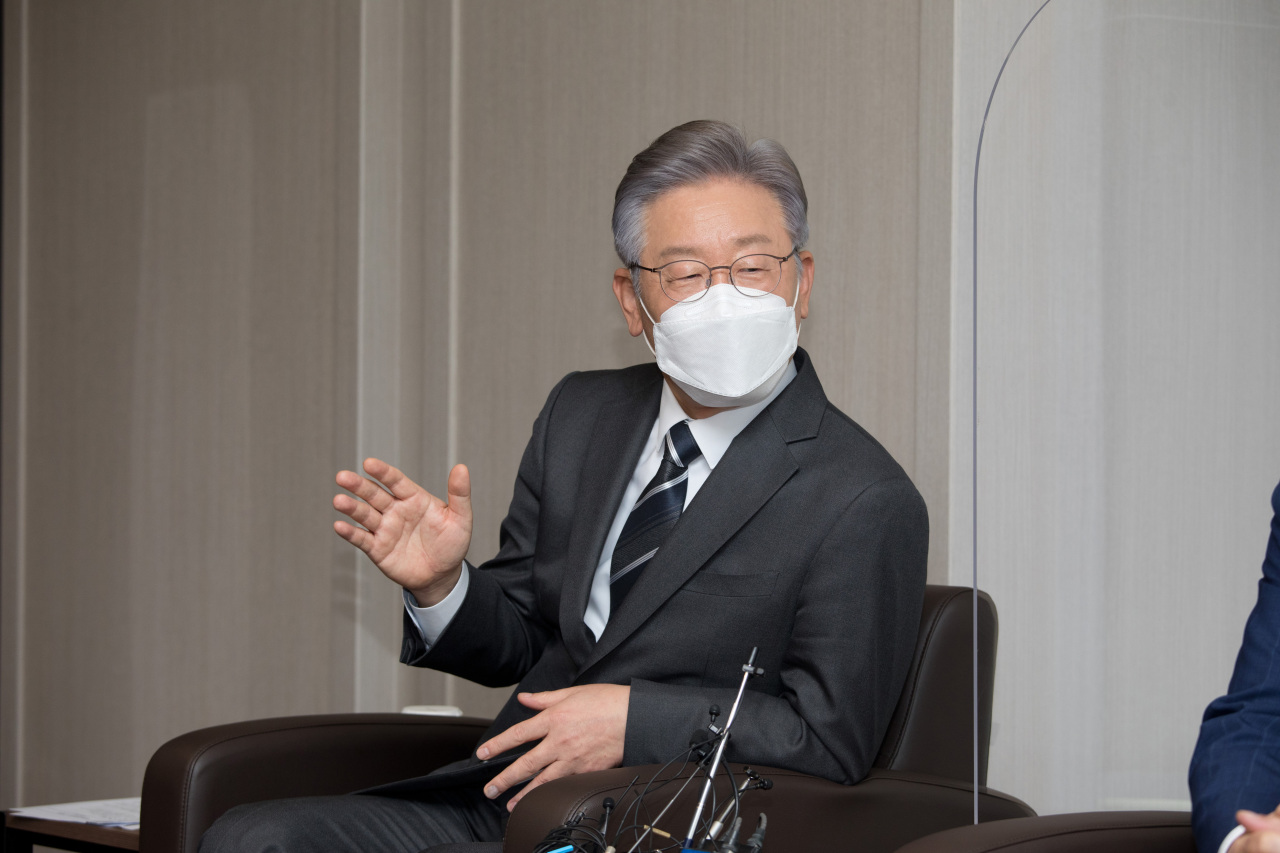 |
Lee Jae-myung, presidential nominee of the ruling Democratic Party of Korea (Joint Press Corps) |
Lee Jae-myung, presidential nominee for the ruling Democratic Party of Korea, expressed caution toward forming a military alliance among South Korea, the United States and Japan, voicing concerns over Japan being an ally on trust issues.
The presidential nominee of the ruling party said in a press conference in Jung-gu, central Seoul, that Japan should be questioned as a trustworthy partner for alliance, citing the historical importance of keeping the Dokdo islets under South Korean sovereignty.
“Dokdo is historically Korean territory, but the fact that Japan keeps questioning the matter shows that this issue could be a problem in the future,” he said in a meeting with the press Tuesday.
The tiny islets southeast of the island of Ulleungdo, North Gyeongsang Province, have long been the subject of territorial dispute with Japan. South Korea is currently exercising legal jurisdiction of the territory.
Lee said forming an alliance of South Korea, Japan and the US is a matter to approach with caution, considering that Japan keeps an “ambiguous stance” on its imperialistic approach on the island, barring such a case as Japan’s cooperation so that “the past history is cleared and the Korean Peninsula has a coexisting stance.”
The presidential candidate for the ruling party also said he would remain flexible to ongoing diplomatic rows, reflecting concerns of his previous opposition to deploying the US’ Terminal High Altitude Area Defense missiles in the country.
He emphasized a “flexible and pliable” approach to the changing international situation, saying that maintaining a posture of conservatism is not so helpful in keeping the peace within the Korean Peninsula.
“Although I cannot agree whether it is helpful to (remain in opposition to the THAAD missile system) in East Asia for our own interests, the missiles have already been placed, so it is hard to voice against it and work to remove it at this point,” he said.
“Although it is important to review possible deployment of additional units, I think it is favorable to keep the ones in place and find solutions on top of it.”
The presidential candidate for the ruling bloc said it is in the public interest to shift from the current approach of central command in the hands of US forces and letting benefits come to the political and military forces of the ally, emphasizing the command be shifted to local military forces.
Lee has widely been considered an opponent of the US military presence in South Korea, saying it has hindered the progress of the democratization of South Korea. But Lee, now fully engaged in his presidential campaign, is viewed to have toned down those objections to appeal to conservative and moderate voters.
The former Gyeonggi Province governor has been criticized for being too liberal and promoting populist policies in pursuit of becoming president.
The presidential election is on March 9, when Lee will primarily compete against Yoon Seok-youl, the presidential nominee of the main opposition People Power Party.
By Ko Jun-tae (
ko.juntae@heraldcorp.com)








![[Today’s K-pop] Blackpink’s Jennie, Lisa invited to Coachella as solo acts](http://res.heraldm.com/phpwas/restmb_idxmake.php?idx=644&simg=/content/image/2024/11/21/20241121050099_0.jpg)